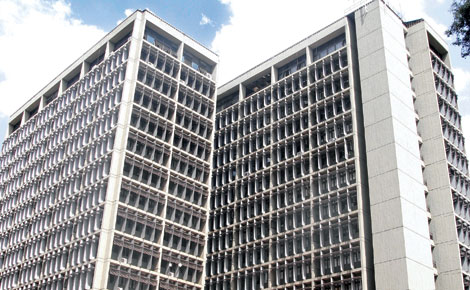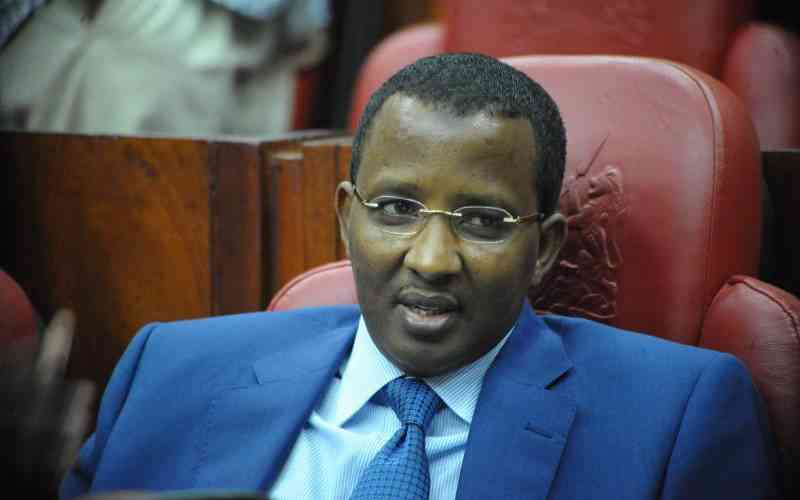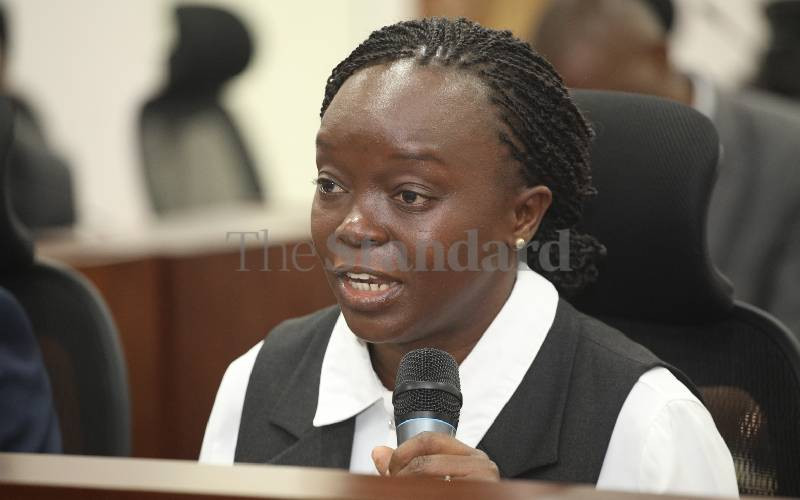 |
|
Treasury is at the forefront of efforts to review calculation of Kenya’s GDP. |
By MARK KAPCHANGA
The proposal to launch a new formula for calculating the market value of goods and services, known as gross domestic product, in Kenya may create an illusion that could see the country’s debt levels go up.
Referred to as rebasing, the review would see the Gross Domestic Product (GDP) expand by 20 per cent, making Kenya a middle-income economy by next month.
Economists say the current GDP, which was rebased in 2001, does not factor in the invention of the Internet, the coming of mobile phones and mobile money transfer services. It also negates unpaid labour of household members, commonly used in rural areas.
The makeover is poised to make the country “very rich” within a month. “It will make Kenya’s debt levels look small, enticing the government to borrow more. If the tax base is not expanded, it means the economy will be under massive inflationary pressures,” said Joy Kiiru of the University of Nairobi.
The Economics lecturer argues that there would be problems explaining to Kenyans why there are high rates of unemployment, poor access to education, healthcare, insurance and food, yet the country is of a middle-income status.
“As a matter of fact, the revision would not take away our problems. What is a number for if it cannot transform people’s lives? This only makes sense to those are fascinated with numbers,” she told The Standard. Analysts say the shift could be informed by the fact that investors would be lured into the country, thereby increasing capital inflows. The headache, Dr Kiiru observes, is that the “overnight” transformation would not have addressed infrastructural, insecurity and high cost of production challenges currently experienced in the country.
Worse, the rebasing is likely to make it difficult for Kenya to engage institutions such as the World Bank and the International Monetary Fund. Nairobi-based economist Robert Shaw says while the formula needs to be often looked at, it is usually complex and controversial. “It is sometimes used to get the right mix. The danger, however, is that it may be used to show some things are going quite well, when they are not,” said Mr Shaw.
Poor performer
Mr Shaw says Kenya’s economy has a huge potential, but it is underperforming. “It is time we looked at how we can grow the economy relative to the country’s needs and challenges,” he said, adding: “Kenya is the largest economy in East Africa, but when it comes to annual economic growth, we are poorer performers than Rwanda, Tanzania and Uganda.” Nigeria, which rebased its GDP by 89 per cent last week, making it the biggest economy in Africa, is also facing huge challenges of rising unemployment, inequality, poverty levels and insecurity. However, Zachary Mwangi, the acting director general at the Kenya National Bureau of Statistics (KNBS), told The Standard in a phone interview that the change was still work in progress, and the final figures would be released in September. “We do not have the figures yet to confirm by how much the GDP would change,” said Mr Mwangi.
Yesterday, The Financial Times quoted a senior manager at KNBS saying the GDP for 2009, the new base year, was “about 20 per cent higher than previously estimated”. “Preliminary results for other years between 2006 and 2011 show revised GDPs going up by between 15 to 25 per cent,” it said.
The rebasing will see the economy jump to $50 billion (Sh4.2 tr), making Kenya the fourth-largest economy in sub-Saharan Africa after Nigeria, South Africa and Angola.
 The Standard Group Plc is a
multi-media organization with investments in media platforms spanning newspaper
print operations, television, radio broadcasting, digital and online services. The
Standard Group is recognized as a leading multi-media house in Kenya with a key
influence in matters of national and international interest.
The Standard Group Plc is a
multi-media organization with investments in media platforms spanning newspaper
print operations, television, radio broadcasting, digital and online services. The
Standard Group is recognized as a leading multi-media house in Kenya with a key
influence in matters of national and international interest.
 The Standard Group Plc is a
multi-media organization with investments in media platforms spanning newspaper
print operations, television, radio broadcasting, digital and online services. The
Standard Group is recognized as a leading multi-media house in Kenya with a key
influence in matters of national and international interest.
The Standard Group Plc is a
multi-media organization with investments in media platforms spanning newspaper
print operations, television, radio broadcasting, digital and online services. The
Standard Group is recognized as a leading multi-media house in Kenya with a key
influence in matters of national and international interest.










